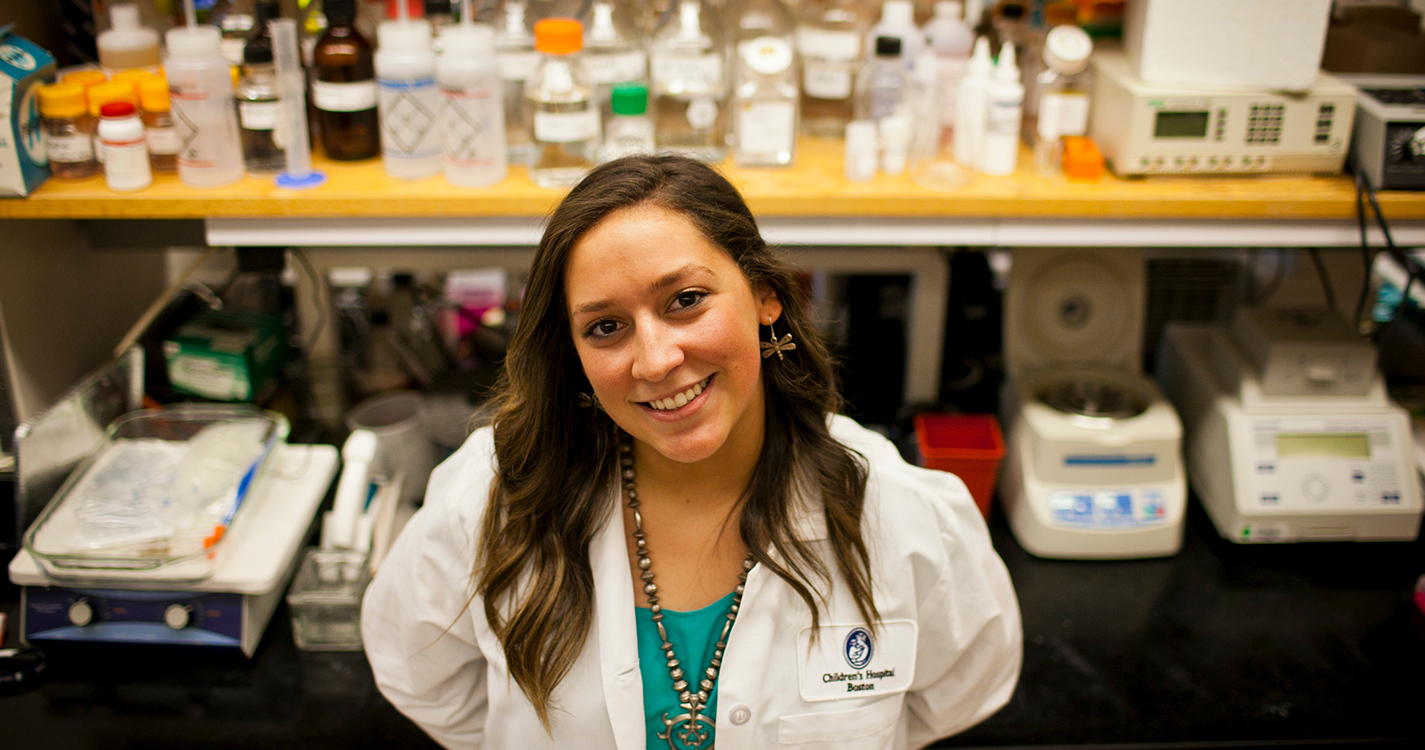Willamette University was an easy choice for Victoria Black Horse ’13. Both her parents went there, and when they visited on a perfect fall day, she fell in love with the campus. “It was gorgeous,” she said. But Black Horse also saw that Willamette’s beauty was more than skin deep. “It felt like a community where one could grow. That’s what college is for — to go through new experiences and help determine what’s in your future.”
Black Horse, who grew up near Seattle, is an enrolled citizen of the Seminole Nation of Oklahoma. After earning her bachelor’s degree in biology at Willamette, she attended medical school at the University of Minnesota, while also mentoring Native American students and working on a nearby reservation assisting a family medicine physician.
“Growing up, I didn’t see many Native American doctors,” she said. “I thought it would be important to become one, not only to give back to the community through healing, but to be a leader and help create change for younger generations.”
Black Horse said that earning her undergraduate degree at a smaller school like Willamette allowed her to enjoy small classes and have a close relationship with her professors while exploring diverse aspects of college life. “This conditioned me to be a leader in future aspects of my life,” she said.
She found all the classes she needed for medical school, including biology, chemistry, biochemistry and biostatistics, and expressed gratitude for the guidance and mentoring of Professor of Biology David Craig. “He was awesome in supporting the dream I had,” she said. “He helped me with making connections and was very supportive during the whole medical school process.”
One of the highlights of her Willamette experience was a class, offered by Professor of Anthropology Rebecca Dobkins, that involved weekly trips to the Chemawa Indian School to tutor high school students. “You can make such an impact,” she said. “It helps them realize they too can get to college.”
Black Horse shared information with the students about the summer research projects she participated in during her time at Willamette, including environmental research in Michigan, under the auspices of Notre Dame University, and an eight-week research program at Harvard University and Brigham and Women’s Hospital in Boston, designed for students who have a commitment to the health of Native American communities.
“I wanted to let the Chemawa kids know what is out there,” she said, “and encourage them to go out and look for opportunities.”
Black Horse was president of Willamette’s Native American Enlightenment Association (now the Native and Indigenous Student Union) and, with the help of Director of Multicultural Affairs Gordy Toyama, worked with other students to organize the annual Social Pow wow and other activities during Native Heritage Month. “It was cool for me to stay involved with the native community,” she said, “and to feel like I was giving back.”
She credited her mother with instilling her drive and focus on service, but noted that Willamette was the perfect place to help her carry on that mission. “My mom raised my sister and me to be strong, independent women who want to give back to their community and to Indian Country,” she said. “And I carry Willamette’s motto, ‘Not unto ourselves alone are we born,’ with me every day in the work I do.”
Now a second-year medical resident specializing in internal medicine at Legacy Health in Portland, Oregon, Black Horse is working long days and planning her next move — hopefully a rotation at a Native American health clinic. She plans to work either as a hospitalist or at a clinic, but once she’s settled, she’s committed to helping other Native American students starting the long climb.
“The path to medical school is very difficult,” she said. “It is nice to have connections to someone saying ‘Hey, this is what you should be doing now; prepare yourself and build your application and resume.”
She advises incoming Willamette students to keep an open mind and to soak up all the knowledge and opportunities available to them on campus. “Do your very best with every class,” she said. “Willamette is a special place, and college is a protected time that we’re privileged to have.
“Enjoy it, but challenge yourself. Be the change. You need to help the generations that are going to follow you.”
Rosemary Camozzi is a freelance writer from Eugene, Oregon.


